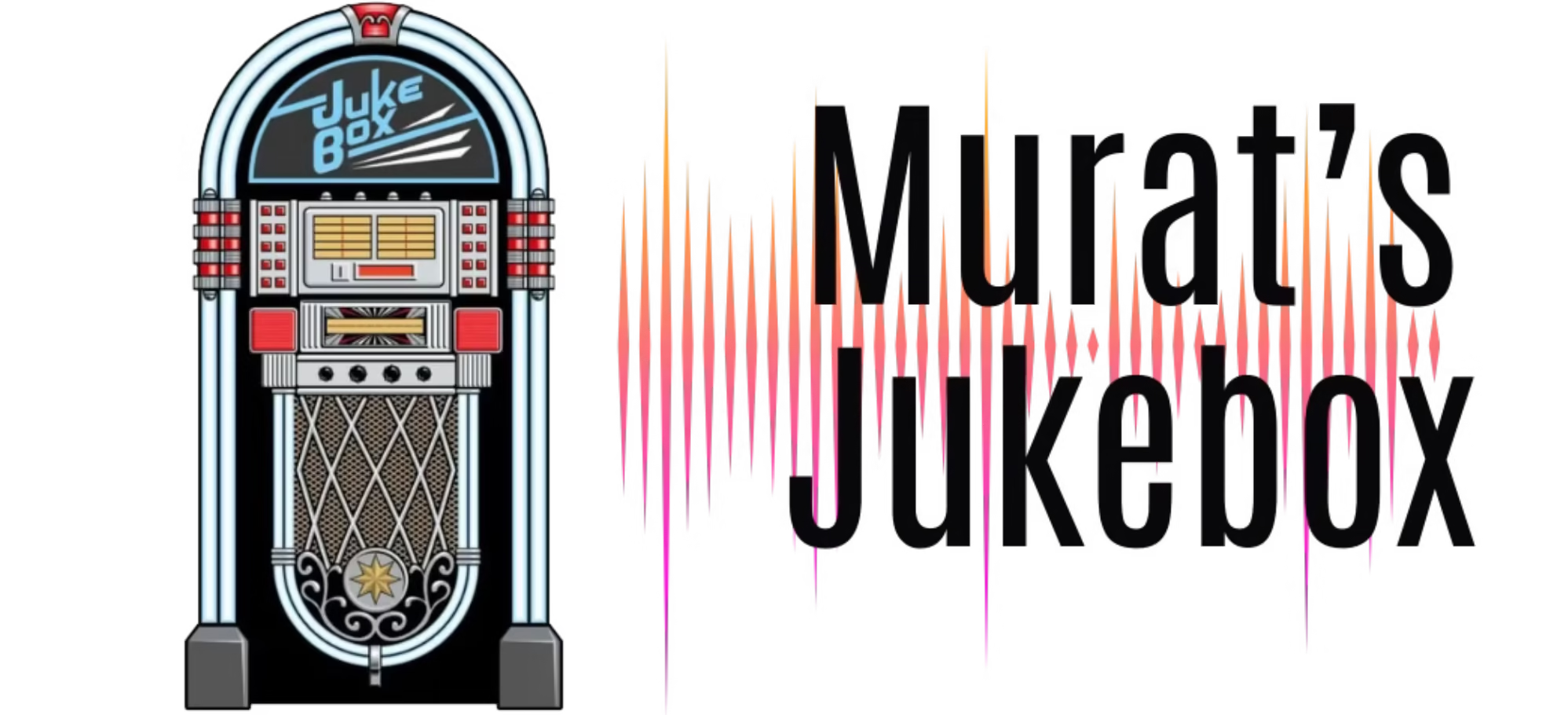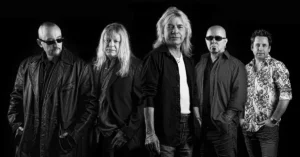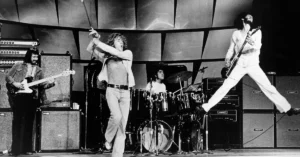Eloy: The Cosmic Journey of Germany’s Progressive Rock Pioneers
Eloy. A Vision Born in Hannover
In the vast realm of progressive rock, few bands embody the spirit of cosmic exploration and conceptual storytelling like Eloy. Founded in 1969 in Hannover, Germany, Eloy became one of the most enduring and influential names in European progressive rock. Often compared to Pink Floyd, yet distinct in sound and philosophy, Eloy wove elements of space rock, symphonic textures, and science fiction narratives into a lush and atmospheric soundscape that has captivated audiences for over five decades.
The band’s name was inspired by the Eloi, the peaceful, time-faring species in H.G. Wells’ The Time Machine—a fitting symbol for a group that would explore timeless and otherworldly themes throughout their career.
Eloy. Founding and Early Years (1969–1973)
Eloy was formed by guitarist , who would remain the group’s visionary and constant member throughout countless lineup changes. Initially influenced by British hard rock bands like and , Eloy’s early sound leaned toward heavy rock with psychedelic undertones.
Eloy (1971)
Their debut album was a mix of bluesy hard rock and early psychedelic experimentation. Though raw, it laid the groundwork for the band’s future direction.
Inside (1973)
With Inside, Eloy began evolving toward a more progressive sound. The album featured extended compositions and thematic continuity, signaling a transition into space rock. Tracks like “Future City” and “Land of No Body” showed clear Floydian influence blended with a Germanic sense of precision.
The Classic Era (1974–1979): Eloy’s Symphonic Peak
This period is widely regarded as the band’s golden era, marked by a shift toward symphonic progressive rock, atmospheric sound design, and sprawling concept albums.
Floating (1974)
An important transitional work, Floating expanded Eloy’s soundscape with swirling keyboards and conceptual themes.
Power and the Passion (1975)
This ambitious concept album told the story of a time-traveling drug user transported to 1358 France. It featured adventurous compositions like “The Bells of Notre Dame”, establishing Eloy’s flair for narrative and dramatic structure.
Dawn (1976)
A profound work dealing with death and spiritual awakening, Dawn was the first of several albums where Frank Bornemann took center stage not only as guitarist but also as the principal vocalist.
Ocean (1977)
Widely regarded as Eloy’s magnum opus, Ocean explores the rise and fall of Atlantis in a sprawling, four-part suite. With lush Mellotron, spacey synthesizers, and philosophical lyrics, it exemplified the best of German symphonic prog.
Silent Cries and Mighty Echoes (1979)
Continuing the style of Ocean, this album leaned even more into Floydian ambiance. Songs like “The Apocalypse” and “De Labore Solis” blended grandeur and melancholy in powerful proportions.
New Wave Influences and Transition (1980–1985)
As the 1980s approached, Eloy adapted to changing musical landscapes by incorporating new wave textures and more concise song structures.
Colours (1980) and Planets (1981)
These albums retained a progressive sensibility but featured shorter tracks and more accessible melodies. Planets began a science fiction storyline that would continue on their next album.
Time to Turn (1982)
A continuation of Planets, this album balanced Eloy’s signature sound with more modern synth layers. It was critically well-received in Germany and remains a fan favorite.
Performance (1983) and Metromania (1984)
With these albums, Eloy embraced 1980s aesthetics more fully—sometimes to the detriment of their classic sound. However, they still carried philosophical depth and emotional resonance.
Hiatus, Reunion, and Reinvention (1986–1998)
Following waning commercial success, Eloy disbanded in the late 1980s. Frank Bornemann focused on studio work and producing other artists. In 1992, he revived the band with a new lineup and a renewed vision.
Ra (1988) and Destination (1992)
These albums saw a return to concept-driven music. Ra, in particular, explored spiritual themes and ancient mythology.
The Tides Return Forever (1994)
A thoughtful, refined album with guest musicians and strong melodic songwriting. This album marked a return to critical favor.
Ocean 2: The Answer (1998)
A sequel to their classic Ocean, this album was ambitious and expansive. While not universally acclaimed, it won praise from longtime fans and marked a significant moment in Eloy’s modern history.
Modern Eloy (2000–Present): The Legacy Lives On
After a quieter decade, Eloy returned to the studio with renewed conceptual ambition.
Visionary (2009)
A blend of classic and modern Eloy, Visionary revisited earlier themes while embracing 21st-century production. It reaffirmed the band’s relevance in contemporary progressive rock.
The Dream and the Dreamer (2017)
Part of a larger project based on Jeanne d’Arc, this album explored medieval and spiritual themes with Eloy’s signature grandeur.
The Vision, The Sword and The Pyre – Part I (2017) and Part II (2019)
This two-part rock opera about Joan of Arc was perhaps the most ambitious undertaking in Eloy’s entire discography. It fused choral sections, symphonic arrangements, and narration, showcasing Bornemann’s commitment to progressive storytelling even after five decades.
Eloy. Musical Style and Themes
Eloy’s sound has evolved considerably, but certain elements remain consistent:
- Atmospheric space rock textures
- Symphonic arrangements with lush keyboards
- Spiritual, philosophical, and sci-fi themes
- Strong narrative structure in concept albums
- Influence from bands like , , and Tangerine Dream
Lyrically, the band has explored:
- Atlantis and myth (Ocean)
- Medieval history (Power and the Passion, Jeanne d’Arc)
- Inner consciousness and spirituality (Dawn, Ra)
- Space exploration and cosmic philosophy (Inside, Planets)
Eloy. Frank Bornemann: The Constant Visionary
The heart and soul of Eloy has always been Frank Bornemann. As the band’s guitarist, vocalist, and producer, he has guided Eloy through stylistic changes, lineup shifts, and evolving cultural landscapes. His lyrical vision—often spiritual, metaphysical, and humanist—has shaped Eloy into a singular voice in European rock.
Bornemann also founded Horus Sound Studio in Hannover, where many Eloy albums and numerous other German rock productions were recorded.
Eloy. Discography Overview (Highlights)
- Eloy (1971)
- Inside (1973)
- Floating (1974)
- Power and the Passion (1975)
- Dawn (1976)
- Ocean (1977)
- Silent Cries and Mighty Echoes (1979)
- Colours (1980)
- Planets (1981)
- Time to Turn (1982)
- Performance (1983)
- Ra (1988)
- The Tides Return Forever (1994)
- Ocean 2: The Answer (1998)
- Visionary (2009)
- The Vision, The Sword and The Pyre – Part I (2017)
- The Vision, The Sword and The Pyre – Part II (2019)
Legacy and Influence
Eloy’s influence is most strongly felt in European progressive rock, especially among , French, and Scandinavian bands. Though not widely known in the Anglo-American mainstream, Eloy built a loyal international fanbase. They remain one of the few German bands to successfully develop a non-Krautrock yet distinctly European progressive identity.
They are often praised for:
- Their thematic cohesion across albums
- Their unwavering commitment to conceptual rock
- Their ability to blend grandeur with melody and mysticism
Fun and Unique Facts
- Eloy’s first language is German, but nearly all their lyrics are written and sung in English.
- The band has never officially disbanded—Bornemann kept it going through all lineups.
- Despite international acclaim, Eloy never charted significantly in the U.S., maintaining instead a dedicated underground cult following.
- Their name and aesthetic were part of a broader sci-fi fascination in 1970s European rock.





